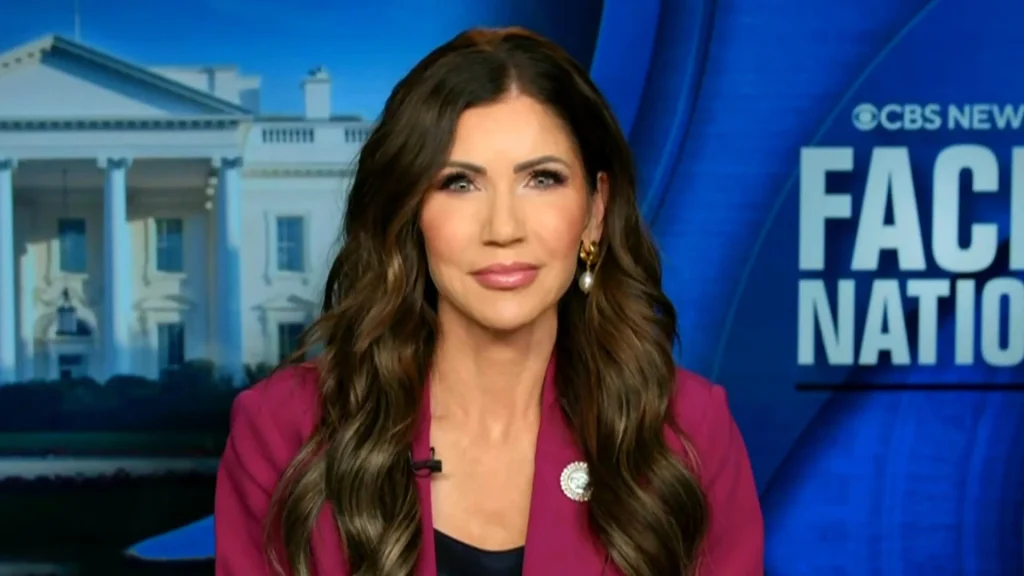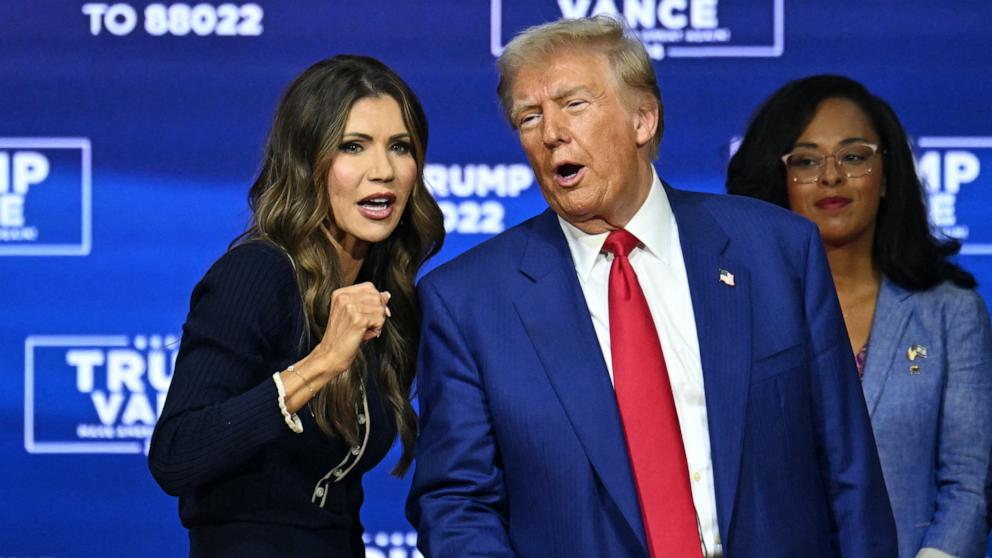KRISTI NOEM INSISTS TRUMP’S LAW-AND-ORDER PUSH WILL HIT RED STATES TOO — EVERY CITY GETS EVALUATED FOR SECURITY, SHE SAYS
I’ve been watching how law enforcement is reshaping across the country lately, and there’s something in Kristi Noem’s latest comments that really struck me—especially since it breaks the usual Washington script. Speaking on Face the Nation, she made it clear: President Trump’s plan to crack down on crime isn’t just aimed at Democratic-led cities. Noem insisted that red-state cities and towns are in the mix too, because “every single city is evaluated for what we need to do there to make it safer.”
That line, simple as it is, carries more weight than most speeches. It reframes the entire crackdown—not as a political weapon—but as a national mission, at least according to administration messaging. It’s a shift from what we’ve seen before, like Operation Legend, where most deployments zeroed in on cities like Chicago and Kansas City. Now, Noem, as Homeland Security Secretary, insists that’s changing. She told CNN’s Aja Seldon from Newsweek that federal support is available based on actual need, not party colors.

Of course, for many people, the devil is in the details. In Washington, D.C., federal agents and National Guard troops have already descended, and similar deployments are being teased for L.A. and Chicago—cities with Democratic leadership. Tensions are high. In Chicago, Governor Pritzker called it unconstitutional, and Mayor Johnson signed an order barring local police from cooperating with federal forces. Legal battles and resistance are already in motion.
Noem’s reassurance—that help isn’t partisan—is an appeal for balance. She emphasized that federal resources are based on what’s needed, not who governs. That might sound fair in theory, but public reaction has been skeptical. Many see these interventions as political overreach, especially when layered on with sanctuary city crackdowns and immigration enforcement pressures. AP News and the Washington Post are already running features on how ICE and border security are ramping up across sanctuary hubs.

It’s hard not to feel that this moment is about more than law enforcement; it’s about image, trust, and national unity. If every city, red or blue, actually gets evaluated equally, this could reshape how we think about federal assistance. But if locals see troops arrive on their streets while they’re not asking for it—or worse, feel like collateral in politics—the narrative shifts from safety to invasion.
In that sense, Noem’s words are hopeful and precarious. She’s laying the groundwork for cross-party legitimacy, trying to frame this as a shared national effort. But execution matters. Will the federal government live up to that nonpartisan promise? Will leadership really extend to rural, Republican areas under strain—or will it just widen distrust?

Looking at where this is heading makes me pause. The balance between safety and civil liberties is already delicate. If federal oversight extends everywhere—or feels like everywhere—it might just redefine local autonomy for years to come. And with Noem insisting this is driven by crime metrics, the next few weeks could reveal whether that claim stands in action, or crumbles in the courts.


